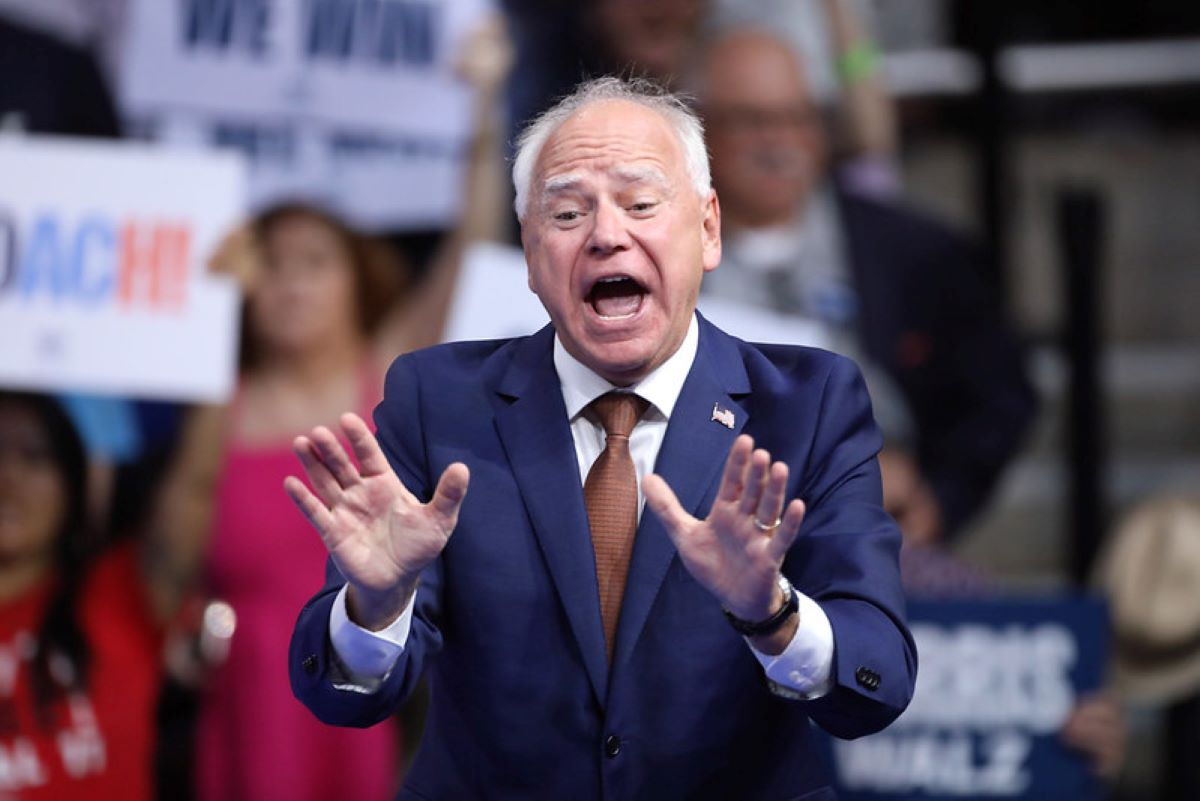A recent state audit has shed light on serious allegations of fraud, waste, and mismanagement within various Minnesota state agencies under the leadership of Democratic Governor Tim Walz. As Vice President Kamala Harris teams up with Walz, now the Democratic Vice Presidential candidate, the timing of these revelations raises concerns about the integrity of Walz’s administration and how these findings might impact the broader Democratic ticket heading into the 2024 election.
According to multiple reports, the audit, led by Minnesota’s nonpartisan state auditor Judy Randall, found widespread problems across several key state programs. These issues range from improper distribution of pandemic-era funds to inadequate oversight of taxpayer-funded mental health and addiction programs. Perhaps the most damaging revelation is the alleged mishandling of a food aid program for needy children, which federal prosecutors have labeled as the largest COVID-era fraud scheme in U.S. history.
One of the key findings from the audit centers on the state’s handling of pandemic-era bonus checks intended for frontline workers. According to the report, these checks were improperly distributed to individuals who did not qualify for the payments, diverting funds from the intended recipients.
Another audit criticized a state agency responsible for overseeing mental health and addiction grants. The audit found that the agency had failed to prevent conflicts of interest, allowing employees to benefit from the very programs they were supposed to manage. Randall noted that this agency has been resistant to addressing concerns raised by the audit, which has only intensified frustrations from critics.
Perhaps the most explosive discovery involves the Feeding Our Future program, a federal initiative designed to provide meals to children affected by the pandemic. Auditors found that the Minnesota Department of Education, which oversaw the program, missed multiple warning signs of fraud. Federal prosecutors have charged over 70 individuals in connection to this scheme, which they allege siphoned $250 million in funds meant to feed children, instead being used to buy luxury cars, fund lavish vacations, and for other personal expenses.
The scope of this fraud has sparked outrage, as the program was meant to provide critical assistance during the pandemic. More than 20 individuals have been convicted so far, with investigations still ongoing.
Governor Tim Walz has acknowledged the failings highlighted by the audit, particularly regarding the Feeding Our Future scandal. He described the critique of his administration’s oversight of the education department as “fair,” adding that while some employees may not have done their due diligence, no state employees were directly implicated in illegal activities.
However, Walz’s critics argue that his administration is responsible for creating a culture of negligence and insufficient accountability. State House Republican leader Lisa Demuth said, “When he is not holding any commissioners responsible, then yes, Governor Walz is responsible for the fraud that has been ongoing in the state of Minnesota.”
Walz has faced increasing scrutiny from lawmakers and media alike for the administration’s failure to take corrective action. Since taking office in 2019, more than a dozen audit reports have documented instances of fraud, waste, and mismanagement under his leadership, raising questions about the governor’s commitment to transparency and proper oversight.
In an unexpected turn of events, even CNN has taken a critical stance against Walz. A recent CNN segment outlined the findings of the audit, calling out Walz for what they described as a failure to address serious instances of fraud in his state. This coverage has put Walz under increased pressure, as even typically left-leaning media outlets now appear to be distancing themselves from his administration’s handling of public funds.
The CNN report focused on the COVID-19 fraud scandal, stating that Walz’s administration overlooked warning signs and allowed the fraud to balloon to its current scale. The report also criticized Walz’s reluctance to implement significant personnel changes despite the mounting evidence of mismanagement.
The audit’s findings have also exposed a pattern of defensiveness from some of the state agencies involved. Randall highlighted that certain departments, such as the one responsible for distributing mental health and addiction grants, have refused to address the majority of concerns raised in past audits. Instead, these agencies have pushed back against the findings, dismissing the severity of the issues or denying that changes are needed.
One agency, implicated in the improper distribution of pandemic bonuses, outright disagreed with the audit’s conclusions. This resistance to addressing critical issues has further fueled frustration among lawmakers and citizens alike.
As investigations continue, the fallout from the fraud scandals under Walz’s administration shows no sign of abating. Federal prosecutors have launched additional probes into fraud cases within the state, with more indictments likely on the horizon.
The political consequences of these revelations could be severe for Walz, especially as he is now a key figure in Kamala Harris’s campaign. Republicans have seized on the scandals, using them as evidence of Democratic mismanagement and lack of accountability. The state’s GOP has called for more aggressive oversight and personnel changes, while Democrats in Minnesota, who have controlled the state government since 2022, face pressure to hold the administration accountable.
Whether Walz can navigate the fallout from these scandals remains to be seen, but with federal investigations ongoing and political tensions rising, the challenges for his administration are mounting. As election season heats up, this issue could continue to haunt Walz and Harris, providing political ammunition for their opponents at a crucial time.
